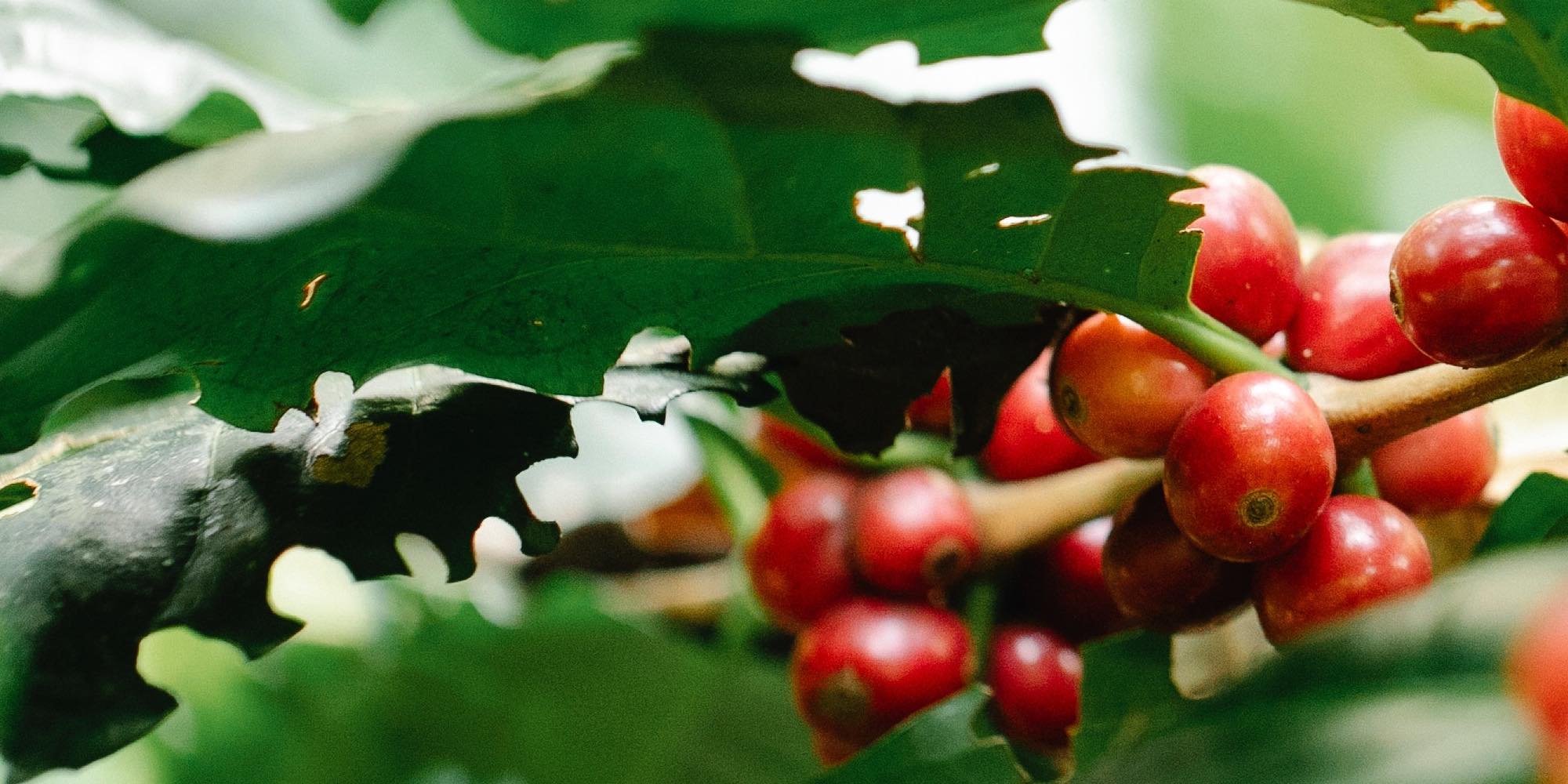THE COMPLETE GUIDE TO INDIAN COFFEE
What Makes Indian Coffee Truly Special
Indian coffee is one of the world’s best kept secrets. Grown under natural forest canopy, hand picked by skilled growers, and shaped by centuries of culture, it represents a beautiful intersection of tradition, craftsmanship, and terroir.
From the lush hills of Chikmagalur to the filtered coffee traditions of South India, Indian coffee offers a smooth, aromatic, and naturally sweet profile that is unlike any other coffee in the world.
This guide takes you through everything you need to know about Indian coffee. Its history, growing regions, flavor profiles, and the traditional brewing rituals that have shaped generations of coffee drinkers.
The Origins of Coffee in India
Coffee arrived in India in the seventeenth century, when a Sufi saint named Baba Budan transported seven coffee seeds from Yemen and planted them in the hills of Chikmagalur. These hills are still known as Baba Budan Giri, and they remain one of the most respected coffee regions in the world.
Over time, Indian coffee evolved into a unique style shaped by:
• Shade grown agriculture
• Hand harvesting
• Natural and washed processing
• Multi generational family estates
• Strong cultural traditions
Today, India is known for producing some of the most consistent and balanced Arabica coffee in the global specialty market.
Where Indian Coffee Is Grown
India’s coffee belt stretches across the southern states of:
• Karnataka
• Kerala
• Tamil Nadu
Of these regions, Chikmagalur in Karnataka is considered the birthplace and heart of Indian coffee. The altitude, soil composition, rainfall patterns, and forest canopy create ideal growing conditions.
Why Chikmagalur Coffee Is Special
• Natural shade from silver oak, jackfruit, and pepper vines
• Rich soil with volcanic origins
• Slow ripening cherries for sweeter flavor
• High altitude estates
• Traditional sun drying
• Clean, mild acidity that suits both light and medium roasts
Indian coffee is often described as smooth, chocolate forward, aromatic, and beautifully balanced.
The Flavor Profile of Indian Coffee
Indian coffee is known for:
• Low bitterness
• Natural sweetness
• Warm chocolate notes
• Gentle spice
• Smooth and full body
• Clean and aromatic finish
This makes it perfect for anyone who enjoys a comforting, approachable coffee that pairs beautifully with milk or can be savored black.
Indian Arabica’s signature profile comes from the way it is grown. Under shade, slowly, and usually hand harvested at peak ripeness.
Indian Arabica vs Robusta
India is one of the few countries that produces high quality shade grown Robusta, but Arabica remains the dominant bean in specialty grade coffee.
Arabica from India
• Sweeter
• More delicate
• Floral and chocolate notes
• Preferred for specialty coffee
Robusta from India
• Stronger flavor
• More crema for espresso
• Naturally higher caffeine
Many traditional South Indian blends combine Arabica with chicory or with a small percentage of Robusta for body and aroma.
The Tradition of South Indian Filter Coffee
South Indian filter coffee is more than a brewing method. It is a daily ritual, a comfort, and a cultural staple across generations.
What defines South Indian filter coffee:
• A blend of Indian Arabica and natural chicory
• A slow drip metal filter called a “decoction filter”
• A thick, aromatic brew called “decoction”
• Hot milk poured over the decoction
• A foamy pour between tumbler and davara
This method produces a smooth, creamy, and aromatic cup that has become iconic in Indian households.
What Is Chicory and Why Is It Used
Chicory is a roasted root that adds:
• Creamy body
• Natural sweetness
• Smooth mouthfeel
• Deep aroma
The traditional blend is 80 percent Arabica and 20 percent chicory, though families and roasters often create their own versions.
Chicory transforms Indian coffee into a uniquely comforting experience, especially when paired with milk.
How Indian Coffee Is Processed
India is known for meticulous, traditional processing methods:
Sun Dried (Natural)
Coffee cherries are dried under the sun until the skins harden and sweet sugars infuse into the beans.
Washed Processing
Beans are pulped, washed, and sun dried on patios for a clean, bright profile.
Monsooned Coffee
A rare process unique to India where beans are exposed to monsoon winds, developing a mellow, earthy flavor.
These methods create Indian coffee’s smooth and approachable taste.
Best Ways to Brew Indian Coffee
Indian coffee works beautifully with many brewing styles:
South Indian Filter
Traditional, smooth, aromatic, and creamy.
Moka Pot
Chocolate forward and rich.
Espresso
Naturally sweet crema with deep aroma.
French Press
Full bodied and aromatic.
Pour Over
Clean and fragrant with a mild sweetness.
No matter the method, Indian coffee tends to be forgiving, well balanced, and comforting.
Why Indian Coffee Is Growing in Global Specialty Markets
Indian coffee has recently gained global recognition because:
• It offers unique sweetness and balance
• It thrives under shade and forest canopy
• It supports sustainable growing practices
• It has a rich cultural story
• Specialty producers now export AAA grade beans
Indian coffee is finally stepping into the spotlight, and more roasters are beginning to share its heritage worldwide.
Why Chikmagalur Coffee from Family Estates Matters
Family estates focus on:
• Consistent quality
• Environmental stewardship
• Hand harvesting
• Multi generational knowledge
• Respect for tradition
This creates coffees that are not only flavorful but deeply connected to culture and identity.
Where to Buy Authentic Indian Coffee
Look for Indian coffee that is:
• Single origin from Chikmagalur
• Shade grown
• Hand picked
• Sun dried
• Small batch roasted
• Directly sourced
This ensures freshness, authenticity, and true flavor.
Final Thoughts
Indian coffee is smooth, aromatic, comforting, and deeply rooted in history. From the hills of Chikmagalur to the morning filter coffee ritual, it represents one of the world’s most beautiful coffee traditions.
Whether brewed in a traditional South Indian filter or enjoyed as a modern espresso, Indian coffee offers an experience that is rich, balanced, and unforgettable.

